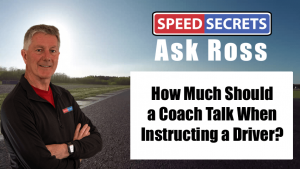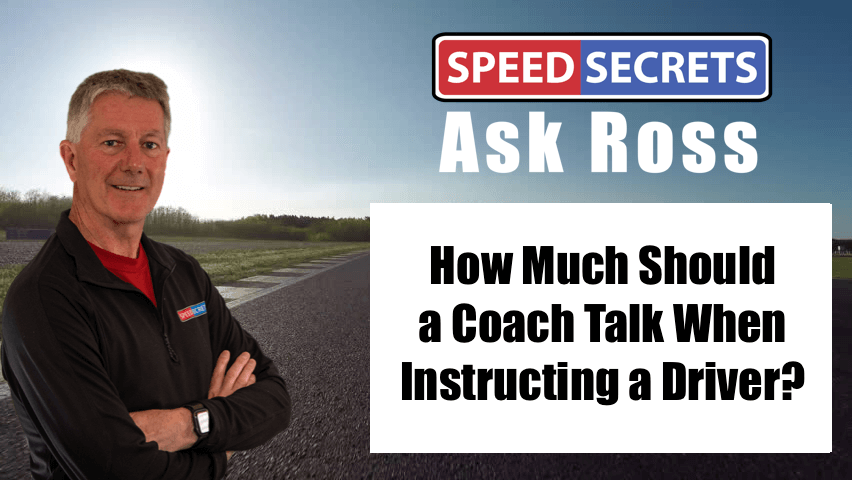 Q: “I recently had the worst experience of my life on the track. Due to various reasons, I was forced to take on a coach whom I did not choose. Later, I learned that this coach was a much slower racing driver than I am (although I am certainly not a champion). He kept talking non-stop, giving me multiple pieces of advice for each turn, and bombarding me with information that seemed very strange. My head was exploding from the overload of information, and I was unable to build any confidence, discover the grip level of the track, or learn how the car behaves. I felt like a terrible driver, even though I had been coached by much more renowned drivers who did not give me this kind of feedback. After returning home, I reflected on all the coaches I had worked with in the past, particularly those who were most renowned. I noticed that the number of tips and the flow of words were inversely proportional to the quality of coaching. Is it a golden rule in coaching to prioritize quality and minimize advice for maximum impact? Or am I mistaken, and are there some very good coaches who talk a lot during sessions?”
Q: “I recently had the worst experience of my life on the track. Due to various reasons, I was forced to take on a coach whom I did not choose. Later, I learned that this coach was a much slower racing driver than I am (although I am certainly not a champion). He kept talking non-stop, giving me multiple pieces of advice for each turn, and bombarding me with information that seemed very strange. My head was exploding from the overload of information, and I was unable to build any confidence, discover the grip level of the track, or learn how the car behaves. I felt like a terrible driver, even though I had been coached by much more renowned drivers who did not give me this kind of feedback. After returning home, I reflected on all the coaches I had worked with in the past, particularly those who were most renowned. I noticed that the number of tips and the flow of words were inversely proportional to the quality of coaching. Is it a golden rule in coaching to prioritize quality and minimize advice for maximum impact? Or am I mistaken, and are there some very good coaches who talk a lot during sessions?”
A: First, I’m sorry to hear about your bad experience. For sure, the best instructors/coaches know when to talk, and when to be quiet. I would not relate his abilities to the amount of talking, as they are two different things. Sure, there are some good instructor/coaches who talk more than others, but the best know how much to give the driver they’re working with, and not to give too much. I agree completely that this “coach” talked too much – any time the student is not learning, the coach needs to adapt.
I would also not relate the coach’s ability as a race driver with their ability to coach. Some of the best coaches I know are not the best and fastest race drivers. Driving and coaching are two different skillsets. Yes, having experience as a race driver helps them relate to the drivers they coach, but they don’t need to be World Champions. In fact, there is some evidence that not having the abilities of a World Champion can lead to being an even better coach. If you know too much, you’re not going to be the best learner, and the best teachers start by being great learners.
I wrote an answer to a question about how to select a driver coach on this Ask Ross page a few years ago. Click here to go to “How do I find & select a driver coach?”
If you’re in that same position again, I’d suggest very politely informing the chief instructor or event organizer that the coach you have is not communicating with you the way you’d like and need, and ask for someone else. Done the right way, you will be assigned a new coach. If not, then you might have to reconsider the event you’re participating in.
As a coach, it’s critically important to know when to talk, and when not to. In fact, one of my favorite sayings is, “Let the silence do the talking.” I often like to ask my driver a question and then just let it sit with them for a while. And when I do talk, it should be about what’s coming up, and not what happened (which no one can do anything about at that point in time). My words and phrases are as short and to the point as I can make them, and eventually they become simple “trigger words” that even when I don’t say them anymore, the driver will hear them in their own mind.
I hope your next coaching experience is lot more fun and productive.

